Steeped in history, culture, and breathtaking natural beauty, Hassan unfolds as a captivating destination in the heart of Karnataka. Untouched by the throngs of tourists, it offers a unique escape for those seeking to explore the hidden gems of India. This travel guide will unveil the must-see sights, off-the-beaten-path treasures, and local experiences that make Hassan an unforgettable journey.
Hassan’s soul is woven with the architectural marvels of Belur and Halebidu, where the intricate craftsmanship of the Hoysala Empire comes alive. Venture beyond these renowned sites and discover the tranquility of the Western Ghats, where every turn unveils a captivating story. Whether you’re a history buff, a nature enthusiast, or simply yearning for a respite from the urban chaos, Hassan has something special to offer. Let us embark on a journey to uncover the secrets of this enchanting region and equip you with all the information needed for a truly enriching travel experience.
How to reach:
Taking Flight:
The closest airport is Kempegowda International Airport (BLR) in Bangalore, roughly 187 kilometers away. Taxis and buses connect the airport to Hassan, with a road journey of approximately 3.5 to 4 hours.
Train Travel:
Hassan Junction (HAS) boasts excellent rail connections to major cities in Karnataka and neighboring states. Regular trains operate from Bangalore, Mysore, and Mangalore. Upon arrival, taxis and auto-rickshaws are readily available for onward travel within the city.
Road Trip:
Hassan is well-connected by a network of well-maintained roads. Here’s a glimpse of some popular routes:
- Bangalore to Hassan: This 185-kilometer journey can be covered by car or a KSRTC (Karnataka State Road Transport Corporation) bus. NH75 (National Highway 75) offers a scenic and comfortable drive.
- Mysore to Hassan: A pleasant drive of approximately 115 kilometers via NH275 awaits you, taking about 2.5 hours.
- Mangalore to Hassan: The distance from Mangalore is around 170 kilometers, with a travel time of about 4 hours via NH75.
Best time to visit:
Winter (October – February): Embrace sightseeing bliss during the winter. Pleasant weather with cool mornings and evenings and mild days make it ideal for exploring historical wonders like the Hoysala temples and other attractions without the discomfort of scorching heat. Winter also comes alive with vibrant cultural events, including the Hoysala Mahotsava in December. Clear skies and comfortable temperatures make it a perfect time for outdoor cultural immersion and exploration.
Monsoon (June – September): Nature lovers, rejoice! The monsoon season transforms Hassan into a tapestry of lush greenery, rejuvenating its natural landscapes. While intermittent rainfall graces the region, it only enhances the beauty of waterfalls and the surrounding countryside. If verdant vistas and the pitter-patter of rain resonate with you, this is a fantastic time to visit.
Summer (March – May): Embrace outdoor adventures during the summer months. Although temperatures rise during the day, this period is suitable for activities like trekking, bird watching, and exploring Hassan’s natural treasures like reserves and sanctuaries. Be prepared for the warmth, but don’t let it deter you from exploring the natural wonders of Hassan.
Attractions:
Shravanabelagola:
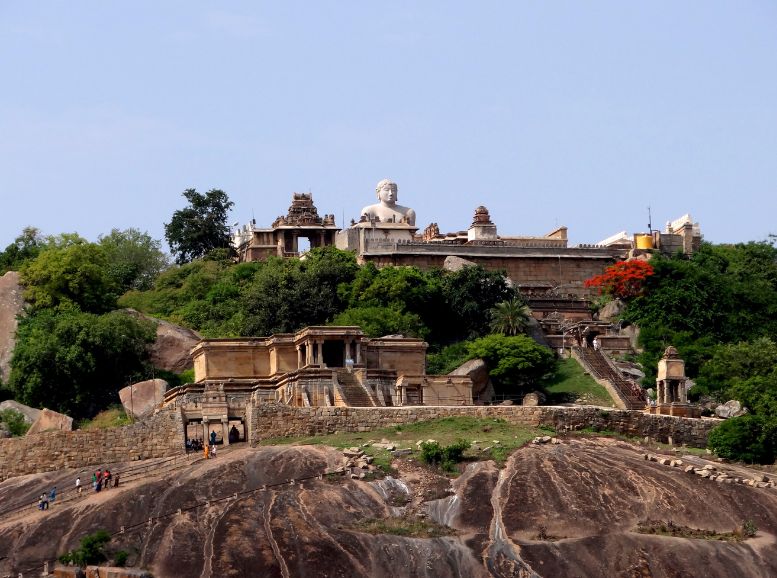
Shravanabelagola, a Jain pilgrimage site perched atop Vindhyagiri Hill, unfolds its rich history spanning over a millennium. The crown jewel of this site is the awe-inspiring monolithic statue of Lord Gommateshwara Bahubali, standing tall at an impressive 57 feet. Pilgrims and visitors alike embark on the challenging climb of 600 steps to reach the summit and venerate the magnificent statue, radiating an aura of peace and serenity. The panoramic vistas encompassing the surrounding landscape, embellished with lush greenery and rocky outcrops, amplify the spiritual ambiance of the site. This destination is a must-visit for those seeking solace, introspection, and a connection to a timeless Jain tradition.
Gorur Dam and Hemavathi Reservoir:
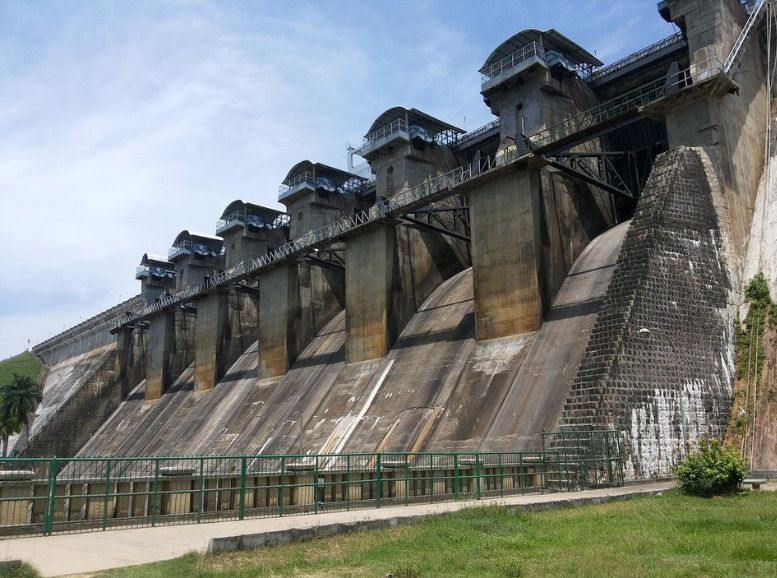
Cradled amidst picturesque countryside, Gorur Dam and Hemavathi Reservoir beckon nature enthusiasts and outdoor adventurers, offering a tranquil escape. The dam, constructed across the Hemavathi River, serves not only as a vital source of irrigation but also as a hub for recreational activities.
Explore the vast expanse of the reservoir by renting coracles or motorboats, immersing yourself in the breathtaking vistas of the surrounding hills and forests. Lush greenery and a serene atmosphere make Gorur Dam an ideal destination for picnics, leisurely walks, and unwinding in the embrace of nature’s bounty. Birdwatchers, rejoice! The area is home to a diverse range of avian life, making it a prime location for spotting feathered friends.
Manjarabad Fort:
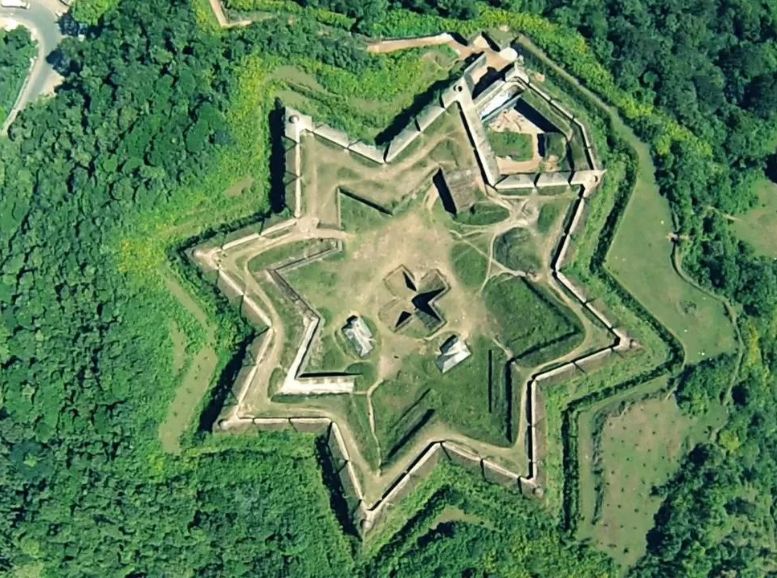
Manjarabad Fort, a captivating architectural marvel perched atop a verdant Hassan hill, beckons history buffs, nature enthusiasts, and photography aficionados. Erected in the 18th century by Tipu Sultan, this star-shaped fort resembles an eight-pointed star when viewed from above. It offers commanding vistas of the Western Ghats and the sprawling countryside below.
Explore the fort’s bastions, ramparts, and enigmatic secret chambers, each whispering tales of its past and strategic significance. Immerse yourself in the tranquility of the surroundings and capture breathtaking panoramic views that will leave you spellbound. Manjarabad Fort promises an unforgettable experience for every visitor.
Shettyhalli Church Ruins:
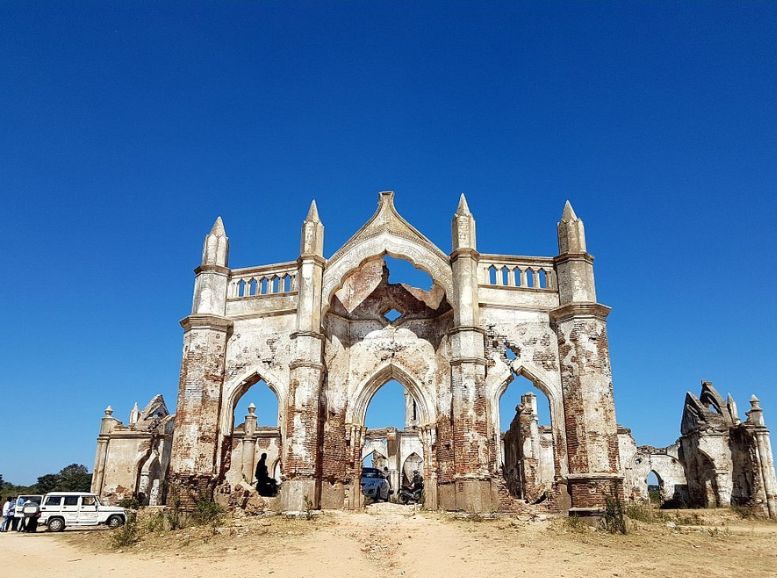
Veiled within the backwaters of the Hemavathi River, the Shettyhalli Church Ruins stand as an evocative testament to a bygone era. French missionaries constructed this church in the 19th century, serving as a spiritual sanctuary for the local community. However, the construction of the Hemavathi Reservoir partially submerged the structure.
Today, during the dry season, the skeletal remains of the church rise from the water, creating a hauntingly beautiful scene. The ethereal beauty of the ruins is especially captivating at sunset, when the golden light paints a magical glow on the tranquil waters. This transformation makes Shettyhalli Church Ruins a cherished destination for photographers and history buffs alike.
Bisle Ghat Viewpoint:
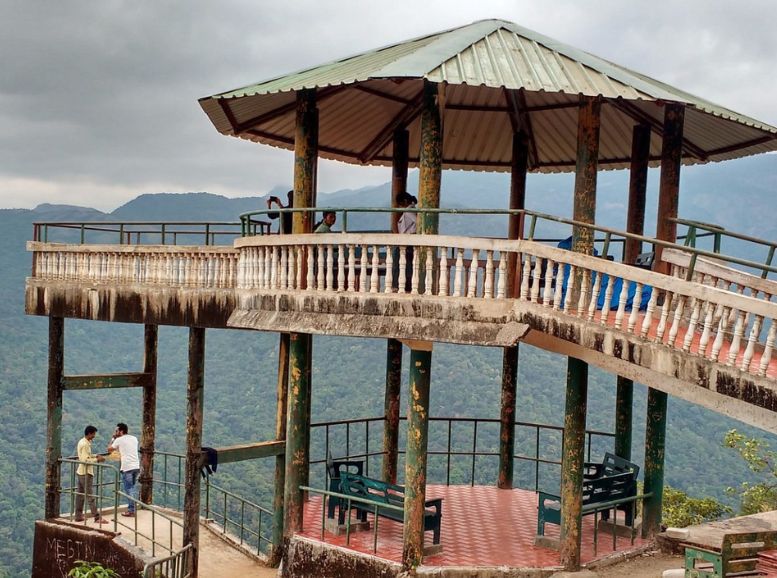
Concealed within the verdant embrace of the Western Ghats lies Bisle Ghat Viewpoint, a haven for nature enthusiasts. This viewpoint unfolds panoramic vistas of lush valleys, mist-shrouded mountains, and endless stretches of verdant tapestry.
For the adventurous soul, a scenic trek awaits, leading to the viewpoint. Traverse through pristine wilderness, encountering a captivating array of flora and fauna along the way. The culmination of this journey is the breathtaking panorama that unfolds before you. Witness the magic of sunrise and sunset paint the landscape in mesmerizing hues, making it a photographer’s paradise.
Sakleshpur Railway Trek:
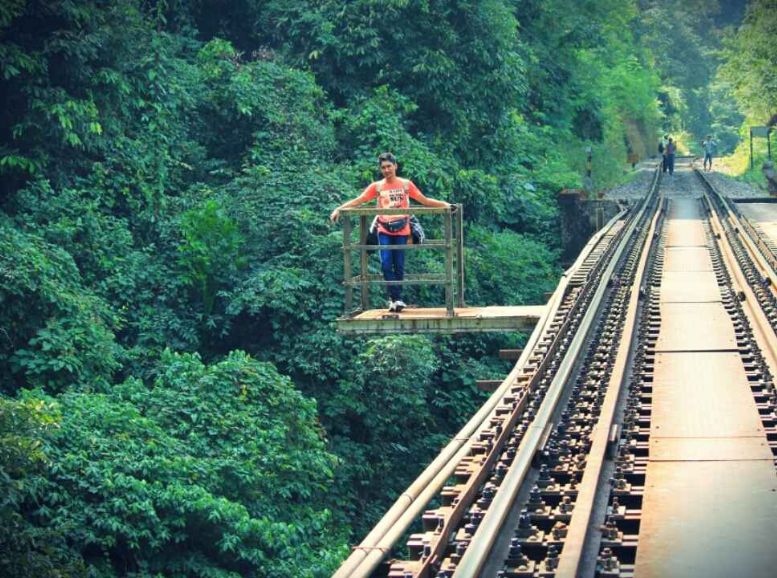
Unveiling the captivating landscapes of Sakleshpur, this region boasts a historical railway track weaving through verdant forests, towering bridges, and dark tunnels. Explore the surrounding areas on an exhilarating trek, delve into the railway’s rich history, and camp under a blanket of stars. Witness the symphony of nature and create lasting memories in this unique blend of adventure, natural beauty, and historical intrigue in the heart of Karnataka’s countryside.
Hassanamba Temple:
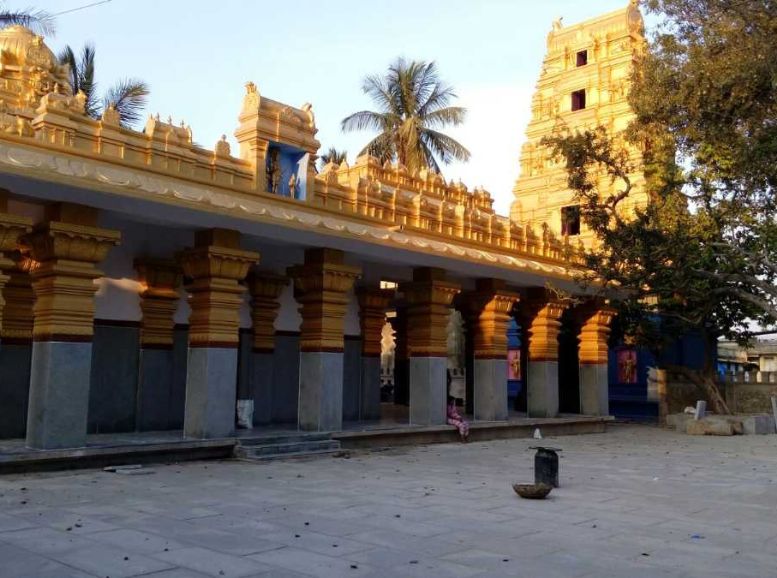
Hassanamba Temple, dedicated to the goddess Hasanamba, stands as one of Hassan’s oldest and most revered sites. Renowned for its architectural charm and intricate carvings, the temple embodies the region’s rich cultural heritage. Marking a special occasion, the temple opens its doors just once a year during Deepavali, attracting throngs of devotees seeking blessings and participating in the vibrant festivities. This fusion of religious fervor, cultural significance, and architectural beauty makes the Hassanamba Temple a must-visit destination.
Bhagwan Bahubali Statue, Shravanabelagola:
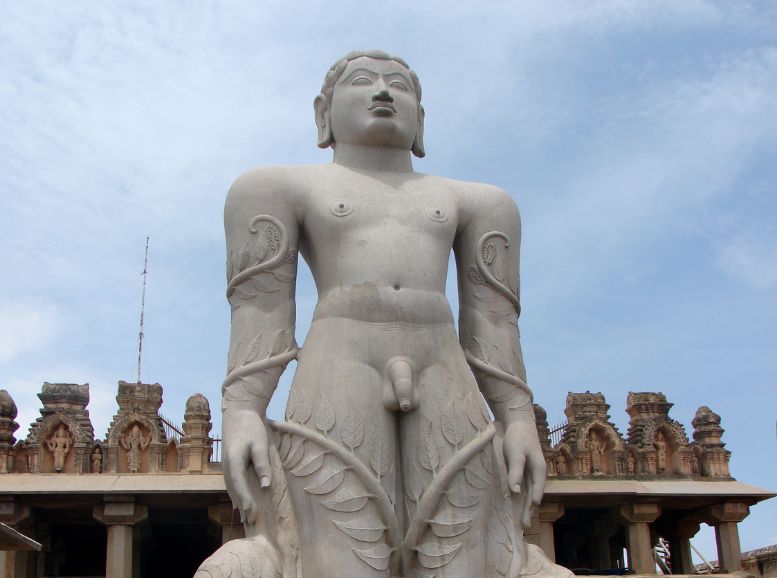
A symbol of peace and enlightenment, the towering monolithic statue of Lord Bahubali in Shravanabelagola is a marvel of artistry and devotion. Carved from a single granite block, this 57-foot giant stands as one of the world’s tallest free-standing monolithic statues. Pilgrims and visitors brave the climb to Vindhyagiri Hill to pay homage, enveloped by the serene aura and intricate carvings that adorn the surrounding temple complex. Here, meditation halls and ornate sculptures provide a sanctuary for spiritual seekers.
Koravangala Temple:
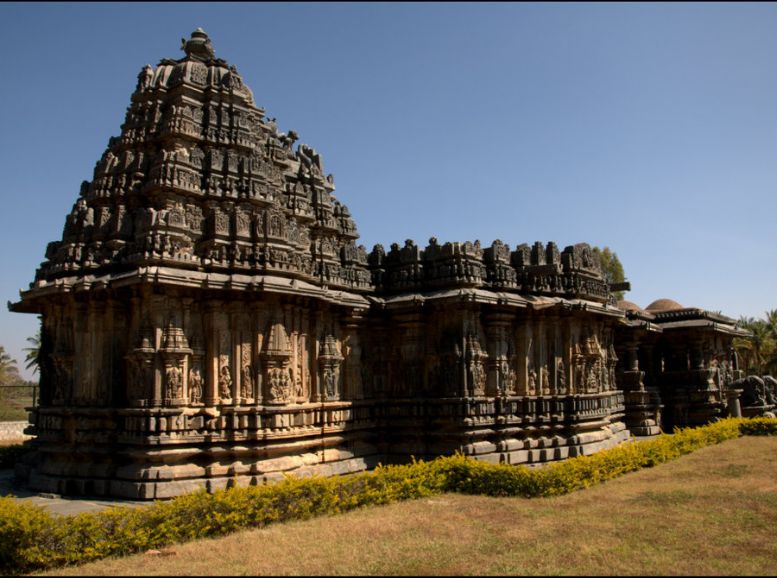
The Koravangala Temple enthralls with its exquisite Hoysala architecture. This 12th-century marvel showcases a unique fusion of Hoysala and Dravidian styles. Intricate carvings depicting mythological tales and deities adorn its pillars, ceilings, and sanctum sanctorum, leaving visitors in awe of the craftsmanship. The serene atmosphere, historical significance, and architectural splendor make Koravangala Temple a must-see for history buffs, architecture lovers, and those seeking spiritual solace.
Local Experiences:
Immerse Yourself in Coffee Culture:
- Unveiling the Bean’s Journey: Embark on guided tours through lush coffee estates. Learn the fascinating process of coffee production, from planting to roasting. Engage with local farmers, witness their passion, and savor the freshest cuppa you’ve ever had.
- Witness Spiritual Grandeur: Witness the grandeur of the Mahamastakabhisheka festival in Shravanabelagola, a once-in-a-lifetime experience. Be a part of the annual opening of the Hassanamba Temple during Deepavali, soaking in the vibrant celebrations, traditional rituals, and the essence of local customs.
- A Culinary Adventure: Embark on a delightful culinary journey. Savor local delicacies like Bisi Bele Bath, a flavorful rice dish, Ragi Mudde, a healthy finger millet staple, and a variety of Dosas and Idlis, South Indian staples. Enjoy traditional meals served on banana leaves, adding an authentic touch to your experience.
- A Shopper’s Paradise: Dive into the vibrant atmosphere of local markets overflowing with fresh produce, aromatic spices, colorful textiles, and handcrafted treasures. Immerse yourself in the weekly markets, buzzing with diverse goods and lively interactions.
- A Legacy in Every Stitch: Witness the artistic brilliance firsthand. Visit workshops specializing in handloom textiles, intricate pottery, and exquisite woodcrafts. Observe the captivating weaving process, try your hand at pottery-making, or learn the time-honored techniques of woodcarving.
- A Step Back in Time: Travel to nearby villages and experience the serenity of rural Karnataka. Participate in unique activities like bullock cart rides, witness traditional farming practices, and learn about the art of milking cows. Opt for a village homestay, and relish delicious home-cooked meals prepared with love.
- Trekking Adventures: Lace up your boots and explore the designated trekking routes and nature trails winding through the majestic Western Ghats. Embark on guided nature walks to discover the region’s diverse flora and fauna. Unwind at scenic locations like Bisle Ghat Viewpoint and Sakleshpur, capturing breathtaking panoramas.
- A Cultural Extravaganza: Witness captivating performances of Bharatanatyam, a classical Indian dance form, and immerse yourself in the melodies of traditional music. Take workshops to learn the basics of classical dance and music, experiencing the essence of Karnataka’s cultural heritage firsthand.
Travel tips:
- City Navigation: Auto-rickshaws and taxis are your go-to options for zipping around Hassan’s bustling center.
- Venturing Out: Renting a car provides flexibility for exploring attractions beyond the city limits.
- Budget Travel: KSRTC buses offer a budget-friendly way to connect Hassan to nearby towns and cities.
- Plan Ahead: Especially during peak seasons (December and October-February) and festivals (Hoysala Mahotsava and Deepavali), booking your stay in advance secures your preferred accommodation.
- Local Experiences: Consider homestays or guesthouses for an immersive experience into local life and culture.
- A Culinary Adventure: Don’t miss the chance to savor Hassan’s delectable cuisine. Sample regional specialties like Bisi Bele Bath, Ragi Mudde, and a variety of Dosas and Idlis.
- Authentic Flavors: Venture into local eateries and roadside stalls for hidden culinary gems and a taste of authentic Hassan.
- Stay Hydrated: Always opt for bottled or filtered water to avoid any health concerns.
- Dress Modestly: When visiting religious sites, dress modestly to show respect.
- Shoe Etiquette: Remove your shoes before entering temples and other holy places.
- Be Mindful: Be respectful of local customs and traditions.
- Pack Smart: Carry a basic first-aid kit and any necessary medications to address minor ailments.
- Beat the Bite: Monsoon season (June to September) brings mosquitoes. Apply insect repellent for protection.
- Sun and Hydration: Stay hydrated by carrying a reusable water bottle, and sunscreen is essential to shield yourself from the sun’s rays.
- ATMs and Cash: ATMs are widespread in Hassan. However, carrying some cash is recommended for smaller purchases, especially in remote areas.
- Card Payments: Major stores, restaurants, and hotels generally accept credit and debit cards.
- Local Lingo: Kannada is the primary language spoken in Hassan. Learning a few basic phrases can enhance your interactions with locals.
- Understanding Tourists: English and Hindi are understood in most tourist areas, making communication manageable.
- Respect the Environment: Be a responsible traveler by respecting the natural environment and local wildlife. Avoid littering and dispose of waste responsibly.
- Support Local Businesses: Show your appreciation for local talent by purchasing souvenirs, handicrafts, and regional products directly from artisans and small businesses.
- Preserve for the Future: Abide by guidelines and regulations at historical sites and natural reserves to ensure their preservation for future generations.
- Mobile Network: Mobile network coverage is generally good in Hassan, but connectivity might be limited in remote areas.
- International Travelers: If traveling internationally, ensure your phone is set up for roaming.
- Wi-Fi Options: Many hotels and cafes offer Wi-Fi. Consider acquiring a local SIM card for enhanced connectivity throughout your exploration.
- Emergency Contacts: Keep a list of emergency contact numbers handy, including the local police (112), medical services (108), and your country’s embassy or consulate.
- Peace of Mind: Opting for comprehensive travel insurance that covers medical emergencies, accidents, and theft provides peace of mind during your adventures.
Conclusion
Unveiling Karnataka’s enchanting Hassan, a land where rich history, vibrant culture, and natural beauty seamlessly blend. Explore the architectural marvels of Belur and Halebidu temples, delve into lush coffee plantations, or find peace by the tranquil Gorur Dam. Immerse yourself in unique festivals, savor delectable local cuisine, and experience warm hospitality. Whether you seek historical wonders, verdant landscapes, or cultural immersion, Hassan offers an unforgettable journey. Plan your adventure with Xploro.com and discover the timeless beauty of Karnataka’s Hassan. Happy travels.
FAQs
- How do I get to Hassan?
- Accessible by road, rail, and air. Nearest airport is Mangalore; Hassan has its own railway station with trains from major cities.
- What are the top attractions in Hassan?
- Belur and Halebidu temples, Shravanabelagola, Gorur Dam, Manjarabad Fort, Shettyhalli Church ruins, Bisle Ghat Viewpoint, and Hassanamba Temple.
- Are there any significant festivals in Hassan?
- Mahamastakabhisheka festival at Shravanabelagola every twelve years, and annual Hassanamba Temple festival during Deepavali.
- What local dishes should I try in Hassan?
- Bisi Bele Bath, Ragi Mudde, Dosas, Idlis, Mysore Pak, Holige, and traditional meals served on banana leaves.
- Where can I stay in Hassan?
- Options range from budget hotels to luxurious resorts and plantation homestays; book in advance, especially during peak seasons.
- Is Hassan a safe place to visit?
- Generally safe; follow basic safety precautions like avoiding isolated areas at night and keeping valuables secure.
- What languages are spoken in Hassan?
- Kannada is primary; English and Hindi are also understood in most tourist areas.
- What outdoor activities can I do in Hassan?
- Trekking, nature walks, touring coffee plantations, birdwatching, and boating at Gorur Dam.
- What transportation is available within Hassan?
- Auto-rickshaws, taxis, car rentals, and buses for local and inter-city travel.
- What should I pack for a trip to Hassan?
- Comfortable clothing, walking shoes, sunscreen, insect repellent, basic first aid kit, and rain gear for monsoon visits.





